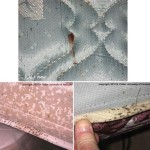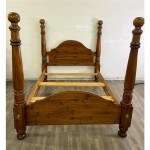How To Protect Yourself From Bed Bugs At Night
Bed bugs are tiny, nocturnal insects that feed on human blood. Their bites can cause itchy welts and significant distress. While eliminating a bed bug infestation requires professional help, several preventative measures can be taken to minimize the risk of being bitten at night.
Inspecting Your Sleeping Area
Thorough inspection is crucial for early detection and prevention. Regularly examine mattresses, box springs, bed frames, and surrounding furniture. Look for live bugs, shed skins (exoskeletons), dark fecal spots, or tiny white eggs. A flashlight and magnifying glass can be helpful tools for this process. Pay particular attention to seams, crevices, and tufts in mattresses and upholstered furniture.
Encasing Mattresses and Box Springs
Encasing mattresses and box springs in zippered, bed bug-proof covers creates a barrier that prevents bed bugs from entering or escaping. These encasements should be specifically designed for bed bug protection and made of a tightly woven material. Ensure the encasements fit snugly and are regularly inspected for any tears or damage that could compromise their effectiveness.
Vacuuming Regularly and Thoroughly
Regular and thorough vacuuming is essential for removing bed bugs and their eggs. Focus on areas around the bed, including the mattress, box spring, bed frame, headboard, and surrounding floor. Pay close attention to cracks and crevices in the floorboards and baseboards. Immediately after vacuuming, dispose of the vacuum bag in a sealed plastic bag outside of the home to prevent re-infestation.
Reducing Clutter Around the Bed
Clutter provides hiding places for bed bugs and makes inspection and treatment more difficult. Minimize clutter around the sleeping area by removing unnecessary items from the floor, under the bed, and on nightstands. This includes books, magazines, clothing, and other personal belongings. Keeping the area tidy and organized makes it easier to spot bed bugs and reduces their potential harborage sites.
Laundering Bedding Frequently
Washing bedding regularly at high temperatures is vital for killing bed bugs and removing their eggs. Sheets, pillowcases, blankets, and comforters should be washed in hot water (at least 120°F) and dried on high heat for at least 30 minutes. Items that cannot be washed can be dry-cleaned or placed in a dryer on high heat for a similar duration. Regularly laundering bedding disrupts the bed bug life cycle and reduces the risk of infestation.
Being Cautious When Traveling
Bed bugs are often transported from infested locations via luggage and clothing. When traveling, inspect hotel rooms thoroughly upon arrival. Place luggage on a luggage rack or in the bathroom, away from the bed and upholstered furniture. Avoid placing clothing directly on the bed or floor. Upon returning home, inspect and vacuum luggage carefully and wash all clothing immediately in hot water.
Inspecting Secondhand Furniture
Secondhand furniture can harbor bed bugs, posing a significant risk of infestation. Before bringing any used furniture into your home, inspect it carefully for signs of bed bugs. Check seams, crevices, and underneath cushions. Consider avoiding upholstered furniture altogether when buying secondhand. If you decide to purchase used furniture, thoroughly clean and vacuum it before bringing it inside.
Sealing Cracks and Crevices
Bed bugs can travel between rooms and apartments through cracks and crevices in walls, floors, and ceilings. Sealing these openings can help prevent bed bugs from spreading. Use caulk or other sealants to close gaps around baseboards, window frames, and electrical outlets. Repair any cracks or holes in walls and ceilings. This creates a physical barrier that limits bed bug movement.
Consider Professional Pest Control
If you suspect a bed bug infestation, it is crucial to contact a qualified pest control professional. Bed bugs are notoriously difficult to eliminate, and professional treatment is often the most effective solution. Pest control professionals have the expertise, equipment, and specialized treatments to eradicate bed bugs effectively. They can also provide guidance on preventative measures to prevent future infestations.

The Ultimate Guide To Bed Bugs Prevention In Singapore

How To Prevent Bed Bugs Bug Prevention Steps Domyown Com

5 Ways To Stop Bed Bugs From Biting You Okil Indonesia

How To Get Rid Of Bed Bugs A Complete 7 Step Guide

How To Get Rid Of Bed Bugs Diy Methods Integrum

How To Prevent Bed Bugs While Traveling The Ultimate Guide Wherever Writer
What I Should Put On My Skin So Bed Bugs Won T Bite Quora

First Aid For Bed Bugs Insects In The City

How To Get Rid Of Bed Bugs And Keep Them Out Anchor Pest Control

Tips For Preventing The Spread Of Bed Bugs Nc State Extension Publications







